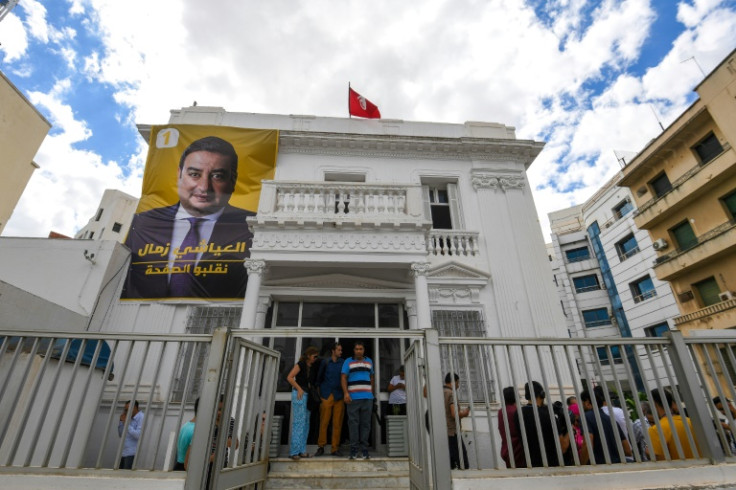
Tunisian politician Ayachi Zammel, a candidate in the North African country's October 6 presidential election, has been sentenced to 12 years in jail, his lawyer said on Tuesday.
"The court in Tunis sentenced Ayachi Zammel to 12 years in prison in four cases" related to voter endorsements, lawyer Abdessater Messoudi told AFP.
Messoudi said the 43-year-old "remains a candidate in the election" on Sunday.
The frontrunner is incumbent President Kais Saied, who was elected in 2019 and later dissolved parliament, replacing it with a legislature with limited powers.
Last Wednesday, a Jendouba court handed down a six-month jail sentence to Zammel for "falsification of documents", adding to a 20-month term the same court imposed on September 18.
Zammel, who was little-known to the general public before his presidential bid, was arrested on September 2 on suspicion of forging endorsements.
He was released on September 6, but was almost immediately rearrested on similar accusations.
A total of 37 separate prosecutions have been launched against him nationwide on similar charges, his lawyer said.
He is accused of breaking the rules on endorsements, which experts say can be difficult to obtain.
In order to stand in the election, a prospective candidate needs 10,000 signatures from registered voters, or those of 10 parliamentarians or of 40 elected local officials.
Former lawmaker Zammel heads a small liberal party, and had been one of just two candidates approved by Tunisia's electoral authority ISIE to challenge Saied for the top post.
His September 2 arrest came on the same day his candidacy was confirmed by ISIE.
Ahead of the vote, ISIE had rejected the bids of some 14 hopefuls.
It eventually presented a final list of just three candidates -- Saied, 66, former parliamentarian Zouhair Maghzaoui, 59, and businessman Zammel.
The candidate selection process has been criticised both in Tunisia and internationally in the run-up to Sunday's presidential election.
Human Rights Watch accused ISIE of skewing the ballot in favour of Saied, with at least eight prospective candidates prosecuted, convicted or imprisoned in the run-up to the election.
"Holding elections amid such repression makes a mockery of Tunisians' right to participate in free and fair elections," said the New York-based advocacy group.
The final ISIE list of three candidates in the presidential election excluded three other hopefuls, despite court rulings granting them appeals after their initial rejection by the electoral body.
These were Imed Daimi, an adviser to former president Moncef Marzouki, former minister Mondher Zenaidi and opposition party leader Abdellatif Mekki.
Experts say they had a chance of winning against Saied.
Prospective candidates had also complained of bureaucratic obstacles such as obtaining the required paperwork to enable them to put their names forward in the election.
The European Union has said Zammel's arrest and the exclusion of the three candidates demonstrated "a continued limitation of the democratic space" in Tunisia.







